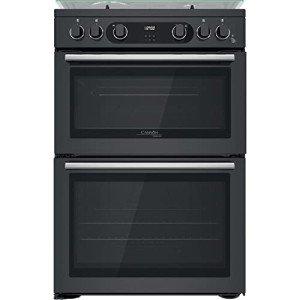The Most Effective Reasons For People To Succeed In The Buy Gas Cooking Appliance Industry
A Comprehensive Guide to Buying Gas Cooking Appliances
When it concerns cooking, the choice of equipment can significantly influence the overall experience and leads to the kitchen. Among the most popular options for cooking is the gas stove. Gas cooking devices are renowned for their performance, accuracy, and ability to deal with high-temperature cooking, making them a top choice amongst home cooks and professional chefs alike. This post will provide an in-depth take a look at different aspects to think about when buying a gas cooking appliance, types of gas cooking devices available, and answers to commonly asked concerns.
Why Choose Gas Cooking Appliances?
Gas cooking home appliances provide numerous benefits over electrical models. Some of the key benefits include:
- Instant Heat Control: Gas stoves enable immediate temperature level changes, using better control over the cooking process.
- Even Cooking: Gas flames supply consistent heating, minimizing the opportunities of locations or scorched food.
- Versatility: Many gas devices can be utilized for a wide range of cooking strategies, consisting of simmering, boiling, and high-temperature searing.
- Energy Efficiency: Gas devices frequently utilize less energy compared to their electrical counterparts, leading to lower utility costs.
Kinds Of Gas Cooking Appliances
When thinking about a gas cooking appliance, there are several types to pick from. Each has its unique features matched to various cooking requirements:
Type
Description
Key Features
Gas Ranges
A mix of gas oven and stovetop.
Versatile cooking approaches; multiple burners.
Cooktops
Standalone gas burners created for counter setup.
Smooth style; perfect for custom kitchen designs.
Wall Ovens
Built-in gas ovens installed in the wall.
Space-saving style; convenient availability.
Outside Grills
Gas sustained grills developed for outdoor cooking.
Perfect for barbecues; high heat retention.
Gas Fryers
Equipment created for frying food utilizing gas.
Quick heating; suitable for expert settings.
What to Consider Before Buying
Before making a purchase, a number of elements ought to be taken into consideration:
1. Size and Space
- Measurement: Measure your kitchen space to make sure the appliance fits well. Think about continue reading this.. of both the cooking surface and oven if applicable.
- Configuration: Decide if a range or a different cooktop/oven setup is more suited to your kitchen design.
2. BTU Rating
- BTU (British Thermal Unit) measures the power output of burner. Higher BTU ratings normally suggest stronger heat output, which is ideal for high-temperature cooking.
- Examine the BTU ranking for each burner to determine if it satisfies your cooking requirements.
3. Material Quality
- Try to find resilient materials such as stainless-steel or durable cast iron. These materials provide better heat retention and are simpler to clean up.
4. Installing Options
- Gas devices can be free-standing, slide-in, or built-in. Consider what fits best in your kitchen style and what your preferences are.
5. Features and Technology
- Ignition: Choose between electronic ignition and standing pilot burner systems.
- Safety Features: Look for devices with safety shut-off and flame failure gadgets.
- Cleansing Options: Some models feature self-cleaning features or removable grates for simpler maintenance.
6. Budget
- Set a budget considering not just the purchase rate but also possible setup costs and future upkeep.
7. Brand Reputation and Warranty
- Research study respectable brands with good consumer reviews. Likewise, think about the guarantee offered and the availability of customer support.
Top Brands to Consider
When choosing a gas cooking appliance, specific brands stand out due to their credibility for quality and efficiency.
- Bosch: Known for smooth style and ingenious innovation.
- KitchenAid: Offers a range of models with easy to use features.
- Whirlpool: A reliable option with a series of gas cooking home appliances.
- Viking: Specializes in high-end, professional-grade devices.
- GE Appliances: Provides a large choice at numerous price points.
FAQs About Buying Gas Cooking Appliances
What are the advantages of using gas over electric cooking appliances?
Gas home appliances supply immediate heat and precise temperature level control, enabling for a more flexible cooking experience. They are frequently thought about more efficient than electrical ranges.
Is it difficult to set up a gas cooking appliance?
While gas ranges can be set up by skilled DIYers, it is extremely recommended to hire a licensed professional to make sure safe setup according to local codes and policies.
How do I keep my gas cooking appliance?
Routine cleaning is necessary. Tidy the burners, grates, and oven frequently. Check gas connections for leakages and guarantee appropriate ventilation in your kitchen.
Can I transform my electric stove to a gas stove?
In most cases, it is possible to transform electrical ranges to gas, however this procedure may include including gas lines and ensuring proper ventilation. Consult a professional before trying a conversion.
Are gas appliances safe?
Gas home appliances are normally safe when utilized and kept correctly. Always ensure you have smoke alarm set up and look for gas leaks routinely.
Buying a gas cooking appliance can substantially boost your culinary experience with its effective and manageable cooking capabilities. Before purchasing, it is essential to think about numerous factors such as size, BTU ranking, material quality, and budget. By comprehending the available options and carefully assessing your needs, you'll be well-equipped to select the ideal gas appliance for your kitchen. With the best option, cooking can be not just enjoyable however likewise a satisfying activity that brings delight to your home.
